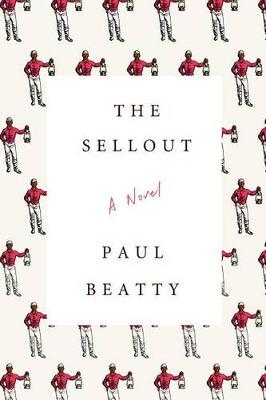Reviewed by Heather on
Have you ever read a book and thought the whole time, "I am way too white to be able to review this book" while laughing out loud at the story?
In a forgotten agriculturally zoned area of Los Angeles, Mr. Me as gotten himself a slave. He doesn't want one but Hominy Jenkins grew up as a child actor playing the most racist roles imaginable and thinks that being a slave won't that much of a change. Me isn't sure about this since Hominy is only willing to work a few hours a day and is fairly useless at best. He's also wracking up bills at the local S & M dungeon because Hominy insists on being beaten and Me won't do it himself. The beatings have to happen though because anytime Hominy decides he isn't being treated badly enough he stands on a box in the front yard and tries to sell himself to passersby.
Me was homeschooled by his sociologist father, who had a lot of very bizarre theories on child rearing. He was also known locally as the "n----- whisperer" for his ability to talk black people out of suicide or acts of violence. His other claim to fame is starting a philosophical society at the donut shop that continues after his death.
This book is proudly not politically correct. It discusses "weren-----" - black people who visit poor black neighborhoods occasionally to bump up their credibility and then flee back to their suburban homes. It maintains that every Californian since the first Native Americans who heard missionaries ringing bells early on Sunday morning, agrees that there are too many Mexicans. If you are the type of reader to be offended by things like this, avoid this book. Otherwise, read it and let it sink in. This is one that you read more for the insights you gain as you read instead of reading for the overall plot.
This review was originally posted on Based On A True Story
Reading updates
- Started reading
- 26 November, 2015: Finished reading
- 26 November, 2015: Reviewed
